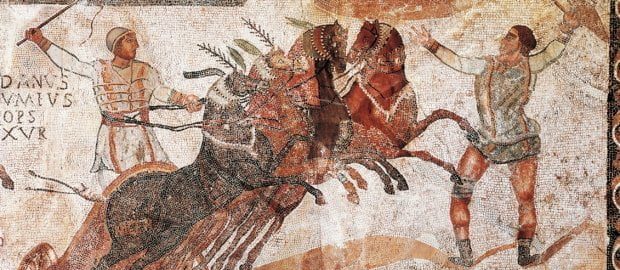Riots from supporters of chariot-racing teams in 532 CE almost brought down Constantinople. Chariot racing party riots in 532 CE nearly brought Constantinople down.
Increasing social tension, caused by rising taxes and spreading corruption among the imperial officials, found its outlet on the evening of January 13, when angry fans of the Green and Blue parties, instead of the usual shouts of cheering for their teams, began to chant the word “Nika”, meaning “win”, and “go ahead”, and they launched an assault on the palace.
In the days leading up to this event, the people’s discontent culminated when some of the supporters of both teams accused of murder during the fight escaped from prison and hid in the church, and Emperor Justinian ordered them captured despite the intercession of their factions, which demanded complete acquittal. As a result of the incident, a great fire broke out, which led to the destruction of the Basilica of God’s Wisdom. Some senators were determined to take advantage of the situation and overthrow the emperor. It was only thanks to the alleged intervention of his wife that Emperor Justinian did not escape from the city and faced his opponents. According to Procopius, Empress Theodora appealed to the dignity of the imperial office and persuaded her husband, declaring that she would not leave Constantinople and would rather die than lose the imperial purple.
The Emperor had the situation under control with general Belisarius. Historians mention about 30,000 insurgents killed in the hippodrome. This figure also includes Hypatius, proclaimed new emperor by the crowd, nephew of one of the emperors. Senators supporting the uprising were expelled and Hagia Sophia rebuilt.







